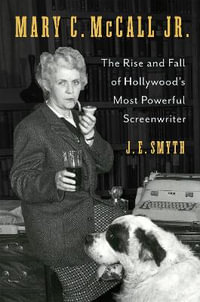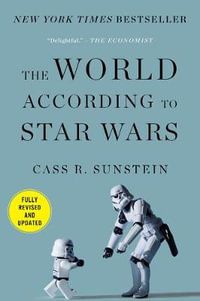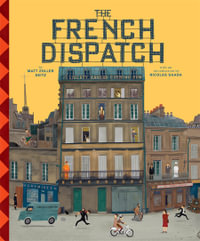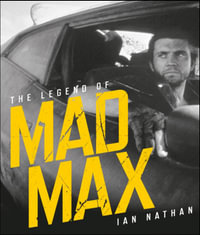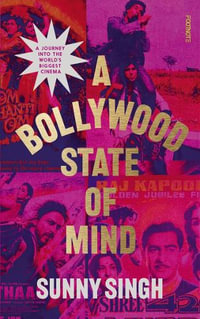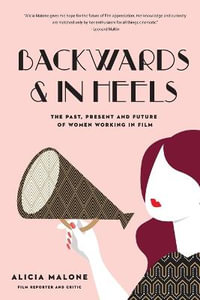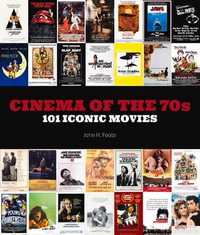Bringing together twenty-five years of work on what he has called the "historical poetics of cinema," David Bordwell presents an extended analysis of a key question for film studies: how are films made, in particular historical contexts, in order to achieve certain effects? For Bordwell, films are made things, existing within historical contexts, and aim to create determinate effects. Beginning with this central thesis, Bordwell works out a full understanding of how films channel and recast cultural influences for their cinematic purposes. With more than five hundred film stills, Poetics of Cinema is a must-have for any student of cinema.
Industry Reviews
"It will come as no surprise to anyone already familiar with Bordwell that these essays exhibit a dazzling command of a wide range of filmmaking styles, fiom Japanese cinema of the Twenties through the Forties (two separate essays) to Hollywood's early usage of Cinemascope to the films of Taiwanese marrial-arts filmmaker King Hu."--Film Comment "Film Theory, rightly or wrongly, makes most film makers cringe. We rarely see our processes, collaborations, technologies, obsessions, or underlying motivations thoughtfully examined in such writings. David Bordwell's work is radically different. Whether examining Hollywood cinema, Hong Kong, Independent, New Wave, silent or sound, high grossing or unknown, he addresses film with a clear mission -- to understand how a film works, how it's made and why -- and to discuss his findings in a direct style that embraces intellectuals and non-academic readers too. I have learned a great deal from David about film narrative, and in Poetics of Cinema, he carries his mission further, drawing on a lifetime's perspective to lay out some universal truths." James Mangold, Director of 3:10 to Yuma, Walk the Line, and Cop Land "Is there anyone who writes about the movies with more intelligence, clarity, and style than David Bordwell? With an awesome depth of knowledge, he conveys a deep love of his subject. In Poetics of Cinema Bordwell explains how movies can transcend, inspire, and become sublime. I feel when I read him that he starts where I leave off.." Roger Ebert "A new book by David Bordwell is always an important event and this one is especially welcome. These wide ranging essays are an oasis of grounded analysis in a desert of parched 'Theory' and readers will drink deep from wells of insight about form, style and context and, above all, of love and appreciation for film." Larry Gross, Professor and Director, USC Annenberg School for Communication "Its title echoing Aristotle and the eponymous 1927 collection of essays by Russian Formalist scholars, Bordwell's Poetics of Cinema reminds us that cinema is not just a cultural artifact or a market commodity, but is, first and foremost, an art form. If you wish to know what makes cinema different from any other art or wonder what it takes to be an expert on film, Bordwell's book is the one to read." Yuri Tsivian, University of Chicago "David Bordwell's Poetics of Cinema is a 'must read' collection of thirty years of Bordwell's engaging inquiry into, and analysis of, cinema from around the world. Bordwell is thorough, imaginative and, yes, in his own words often 'mirthful' in his analysis of every topic he undertakes." Andrew Horton, University of Oklahoma, author of Writing the Character Centered Screenplay. "By turns suggestive and conclusive, playful and polemical, wide-ranging and to the point, Poetics of Cinema comingles the keen passion of a cinephile and the precision of a distinguished film scholar. David Bordwell's compellingly choreographed and painstakingly documented essays revisit, extend, and update the rich work of many decades." Eric Rentschler, Harvard University "David Bordwell's work on the poetics of cinema has been foundational for modern cinema studies, dedicated to an intense focus on the processes by which films make meaning and alert our senses. His combination of clarity and insight make him a master of the moving image, a scholar whose knowledge of the range of cinema remains unparalleled and a critic whose polemics are impossible to ignore." Tom Gunning, University of Chicago "This is a wonderfully rich and diverse collection of essays, covering a wide array of topics with David Bordwell's characteristic rigour and verve. The collection spans just about the whole of Bordwell's career, making available several important earlier essays; but because he has taken the trouble to substantially revise or update all of the reprinted material, the book conveys a vivid sense of Bordwell's current thinking. By weaving the past essays into a coherent structure with new work, the book also hints at an intellectual autobiography, showing us the history and development of Bordwell's concerns. The collection confirms that Bordwell is not only the most significant film scholar of his generation, but one of the most impressive figures in the humanities in general over the past thirty years." Murray Smith, University of Kent "Bordwell's primary interest, indeed his passion, is the film itself. Throughout his book, he writes with an infectious enthusiasm and demonstrates an encyclopedic knowledge of film, dotting the text with numerous film citations and plot synopses. Film scenes and sequences are analysed shot by shot, with extensive use of frame stills (more than five hundred). He gives close attention to the subtle details of film style, such as camera framings and the choreographed movements of actors. All this exemplifies "rational and empirical enquiry" (3). The truth is out there, he believes, though it is no doubt messy and complicated." Daniel Barratt, The Evolutionary Review





